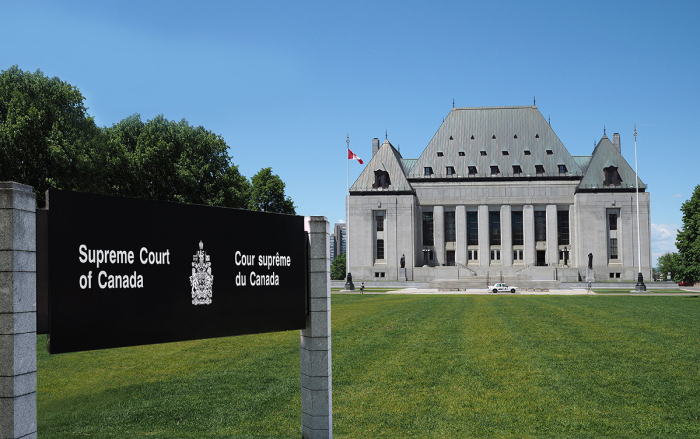
Canada’s highest court docket will decide if the province of Quebec can implement a 2019 legislation banning public officers in authority positions from sporting spiritual symbols whereas on responsibility.
The Supreme Court docket of Canada determined final Thursday that it’ll hear an enchantment within the case of English Montreal College Board, et al. v. Legal professional Normal of Quebec, et al.
The excessive court docket didn’t embrace extra touch upon the choice to listen to the enchantment however famous that Justice Mahmud Jamal “took no half within the judgment.”

Get Our Newest Information for FREE
Subscribe to get day by day/weekly e mail with the highest tales (plus particular presents!) from The Christian Publish. Be the primary to know.
Quebec Justice Minister Simon Jolin-Barrette and Jean-François Roberge, the minister answerable for secularism, issued a joint assertion saying they’ll defend the legislation “till the tip.”
“It’s primordial, even very important, for Quebec to have the ability to make its personal decisions, decisions that correspond to our historical past, to our distinct social values and the aspirations of our nation,” acknowledged the federal government ministers, based on the Canadian Broadcasting Company.
Canada’s federal authorities intends to intervene within the case in opposition to the challenged measure.
Quebec’s Nationwide Meeting handed Invoice 21 in 2019, which requires numerous public officers in authority — equivalent to law enforcement officials or academics — to chorus from sporting spiritual symbols whereas performing their duties. The legislation was renewed final 12 months.
The measure has been challenged a number of occasions. However efforts to overturn the legislation within the Quebec Superior Court docket and the Quebec Court docket of Enchantment have failed, CBC notes.
Whereas the Quebec Superior Court docket sided with the English-language faculty boards after they argued that the legislation violated their “linguistic rights,” the Court docket of Enchantment overturned this choice in February 2024.
Harini Sivalingam, director of the Equality Program on the Canadian Civil Liberties Affiliation, one of many teams difficult Invoice 21, argued at a press convention that the act is “infringing on the dignity, rights and freedoms of people who work in or aspire to work within the public service in Quebec.”
“Allow us to be clear, Invoice 21 is a discriminatory legislation that violates the elemental rights and freedoms of Quebecers. It negatively impacts people based mostly on their spiritual beliefs,” Sivalingam acknowledged.
“It’s clear that Invoice 21 has a disproportionate impression on particular spiritual minority teams, equivalent to Muslim, Sikh and Jewish communities. Particularly ladies.”
Dwight Newman, a legislation professor on the College of Saskatchewan, wrote in a column for The Hub that “Québec has a singular historical past with governmental energy of spiritual establishments.”
“So, it understandably has a singular perspective on threats to non secular freedom posed by an overt spiritual presence in governmental establishments. It enacted the legislation at situation after actually a long time of debate,” wrote Newman.
“Québec’s method shouldn’t be dramatically totally different from that of functioning liberal democracies in Europe with analogous histories. These approaches have been permitted by the European Court docket of Human Rights.”


















